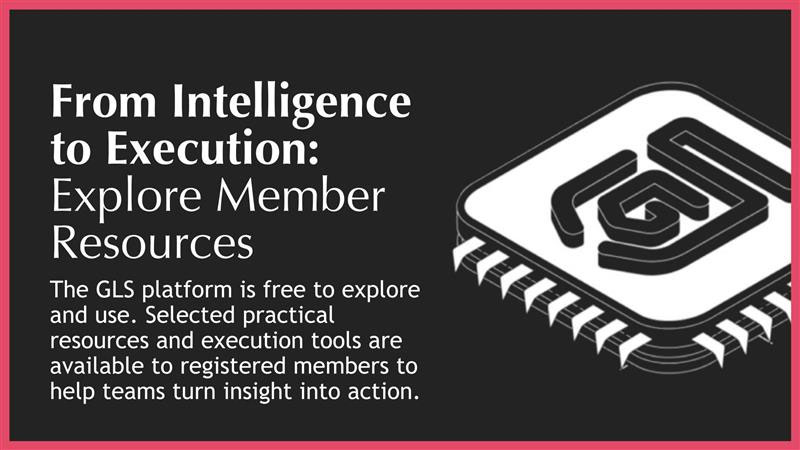The GLS Legal Operations Centre
Intelligence, resources and execution support
Transformation Tube Map
Knowledge Centre
Legal Dept.
Resources
Managed Legal Services
Members
Resources
Legal Ops
Community
Back
Legal Operations Planning
What Is It
Legal Operations Planning is the strategic discipline that enables General Counsel to lead legal teams that are not only effective, but scalable, data-driven, and business-aligned. It is the GC’s blueprint for transforming legal from a reactive service function into a proactive, performance-led business unit.
Legal operations is no longer a niche concept - it is the new management science of legal. It encompasses budgeting, technology, process optimisation, vendor management, data analytics, and performance tracking. For most GCs, this is unfamiliar territory. But it is also the only territory where modern legal leadership can thrive.
The GC must now operate like a divisional CEO. That means managing resources, setting KPIs, and demonstrating ROI. Legal Operations Planning gives the GC the tools to do this. It allows the legal function to handle growing workloads without growing headcount, to automate low-value tasks, and to generate the data needed to prove legal’s strategic value.
There’s also a cultural nuance: lawyers often resist leadership from outside the profession. This is why many legal ops professionals - especially those without legal backgrounds - struggle to gain traction. But when legal operations is led by the GC, it gains legitimacy. It becomes a leadership strategy, not a support function. And for the GC, it becomes a career accelerator. Those who master legal ops become proven change agents - highly valuable, highly visible, and highly mobile across the business.
Scope
Legal Operations Planning includes:
◼️Designing and implementing a legal operations strategy aligned with business goals
◼️Identifying inefficiencies and prioritising transformation initiatives
◼️Establishing KPIs and performance dashboards for legal service delivery
◼️Leveraging legal technology to automate workflows and reduce manual effort
◼️Managing legal spend, budgeting, and external counsel relationships
◼️Creating scalable processes for matter management and resource allocation
◼️Building reporting frameworks to demonstrate legal’s value to the business
◼️Driving cultural change towards continuous improvement and operational excellence
Resource Status
The Legal Operations Planning station is considered a Repeater resource within the GLS Legal Operations model.
A Foundational Resource: Is responsible for determining the overall performance capabilities of a “critical” legal function. If it is not optimised, the function can never be optimised.
A Repeater Resource: Supports the performance of multiple "critical" legal functions and as such represents a "ripple effect" productivity intervention point.
A Specialist Resource: Is responsible for driving the performance of a very specific part of an individual legal function. Its productivity contribution is limited to that single legal function.
Best Practice Features
The best practice features of Legal Operations Planning are as follows:
◼️A GC-led legal ops strategy with clear objectives, timelines, and stakeholder buy-in
◼️Integration of legal ops into daily workflows and team culture
◼️Use of performance dashboards to track output, efficiency, and value delivery
◼️Adoption of legal tech tools that align with operational priorities and user needs
◼️Regular review of legal spend and resource utilisation against benchmarks
◼️Engagement with cross-functional stakeholders to ensure alignment and support
◼️Training and development for legal team members in legal ops principles
◼️A feedback loop that drives continuous improvement and innovation
Business Value
The Legal Operations Planning station delivers the following value to the Business:
◼️Cost Efficiency: Enables smarter resource allocation and vendor management, reducing legal spend without compromising quality.
◼️Time Savings: Streamlines workflows and automates routine tasks, accelerating turnaround times across legal processes.
◼️Faster Deal Velocity: Removes bottlenecks in contracting and approvals, enabling quicker commercial execution.
◼️Data-Driven Decision Making: Provides real-time insights into legal performance, enabling informed strategic decisions.
◼️Improved Risk Management: Enhances visibility into legal risk exposure through structured reporting and analytics.
◼️Business Alignment: Ensures legal priorities are aligned with business goals, improving stakeholder satisfaction.
◼️Operational Agility: Equips the legal function to respond quickly to regulatory changes and market shifts.
◼️Strategic Enablement: Positions legal as a proactive enabler of business growth, not just a reactive gatekeeper.
Legal Department Value
Legal Operations Planning strengthens the legal team ecosystem by:
◼️Empowering the GC to lead with strategic clarity and operational control.
◼️Reducing burnout through better workload distribution and prioritisation.
◼️Creating transparency around team performance and resource utilisation.
◼️Supporting career development by exposing lawyers to modern management tools.
◼️Enabling focus on high-value, strategic legal work rather than administrative tasks.
◼️Building a culture of accountability and performance excellence.
◼️Improving morale by giving the team visibility into their impact and achievements.
◼️Facilitating transformation by embedding continuous improvement into daily operations.
Who Needs It
The Legal Operations Planning station is essential for:
◼️Legal departments seeking strategic alignment with the business
◼️General Counsel aiming to lead with authority and measurable impact
◼️Legal teams experiencing resource constraints and rising workloads
◼️Organisations investing in legal transformation and performance metrics
◼️Businesses requiring agile, empowered legal support
Productivity Consequences
A legal team operating without a Legal Operations Planning strategy will face a wide range of inefficiencies including:
◼️Inability to scale legal services with existing resources
◼️Poor visibility into team performance and value delivery
◼️Fragmented workflows and inconsistent service quality
◼️Increased legal spend due to lack of process control
◼️Low morale and high burnout from reactive workload management
◼️Missed opportunities for tech-driven efficiency gains
◼️Difficulty demonstrating value to the business
◼️Reduced influence in strategic decision-making forums
Tech Implication
Legal Operations Planning is a technology-leveraged station. It requires:
◼️Adoption of legal tech platforms (CLM, matter management, analytics)
◼️Integration of performance dashboards and reporting tools
◼️Use of automation to reduce manual effort and improve consistency
◼️Alignment with enterprise systems for seamless data flow
◼️Ongoing evaluation of tech ROI and user adoption
◼️Digital enablement of legal processes for scalability and transparency
◼️Secure data governance to support analytics and compliance
◼️Tech fluency within the legal team to maximise adoption and impact
What Next?
Visit each Station on this Line for in-depth analysis of what it takes to make this in-house function really perform. Or you can go back to the overall GLS Legal Transformation Tube Map.
In most cases, the GLS Legal Operations Centre contains everything you need to effectively optimise this key function yourself – or feel free to reach out to us – and we can help you.

The GLS Legal Operations Centre
Register to access your complimentary Day 1 Resource Stack packed with legal team performance resources.

GLS Ultimate Guide To Legal Operations
Download this and read it thoroughly and regularly. It is a wonderful transformation companion.

Book A No-Obligation Consultation
If you would like discuss your legal transformation needs, please book a 30 minute free consultation with us.

GLS Legal Transformation Boot Camp
Our hugely successful, 10-week long, email-based boot camp on how to effectively transform your legal team.




